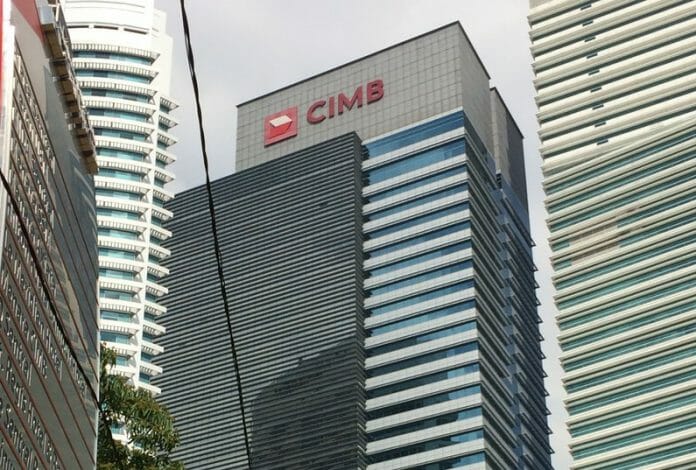CIMB Group Holdings Berhad (CIMB) has taken a significant step within the global banking industry by formalising its 2030 climate target for its palm oil sector portfolio focusing on sustainable palm oil production.
In a statement today (Nov 23), CIMB said to encourage the growth of sustainable palm oil, it has set a goal to reduce emissions intensity of its entire palm oil portfolio by 16%, from 1.81 in 2022 to 1.52 total CO2 emission per total crude palm oil (tCO2e/tCPO) by 2030 – equivalent to a 2% annual reduction on average.
“The decarbonisation target is set based on the Science-Based Targets Initiative (SBTi) and Forest, Land and Agriculture (FLAG) guidance.
“These include Scope 1 and 2 emissions, originating from plantation and milling clients, along with Scope 3 upstream emissions associated with clients’ sourcing of fresh fruit bunches from suppliers,” it said.
To that end, CIMB will engage with its clients to shift production towards certified sustainable palm oil and other sustainable practices and it it is the first bank globally to announce a science-based Net Zero decarbonisation pathway for the palm oil sector.
“CIMB’s Net Zero targets for this sector serve to complement its No Deforestation, No Peat, and No Exploitation (NDPE) commitment which was rolled out in 2022, where clients with new plantations are required to conduct a High Conservation Value (HCV) assessment and commit to conservation and ensuring stakeholders’ to be safeguarded,” it said.
Concurrently, the group also continues to amplify its commitment to decarbonisation, establishing a target for its power portfolio.
These commitments are an extension to last year’s milestone announcement of Net Zero targets for its thermal coal mining and cement portfolios in pursuit of achieving its overarching 2050 Net Zero commitments.
CIMB has set an interim Scope 1 emissions target for its power generation portfolio, in line with the International Energy Agency’s (IEA) 2023 Net Zero Roadmap reference scenario.
The group targets to reduce the emissions intensity of its power portfolio by 38%, to meet an emissions intensity target of 272 kilogrammes of CO2 equivalent per megawatt hour generated (“kgCO2e/MWh”) by 2030.
Its group chief executive officer Datuk Abdul Rahman Ahmad said the group is pleased to present a comprehensive strategy on these sectors, the first in Malaysia, solidifying its commitment towards Net Zero by 2050.
“We firmly advocate for the sustainable production of palm oil and recognise the crucial role that businesses, including the MSMEs play in advancing towards sustainable palm oil production.
“We will continue to actively support and enable our clients and small-scale growers to embrace and adopt certified sustainable palm oil standards,” he said.
Meanwhile, CIMB is also committed to support decarbonisation in the power sector, leveraging the rapid advancements in renewable energy technologies and supportive national schemes to accelerate the transition to a Net Zero economy.
In line with these initiatives, the group has also released a comprehensive whitepaper on its decarbonisation plans that meticulously outlines sector-specific pathways and immediate plans for the four key sectors that represent around half of the group’s current emissions.
“The power sector in Asean is still largely dependent on fossil fuels. A just energy transition will require the switch to low carbon and renewable alternatives while maintaining energy security and affordability.
“With sustainability being a key priority under our Forward23+ strategic plan, CIMB will continue to actively catalyse and drive the adoption of environmentally and socially responsible practices.
“In particular, CIMB will continue to support and grow our palm oil exposure in Malaysia and Indonesia given the many inherent strengths and efficiency of the crop. We will complete the other key sectors by early 2024,” Abdul Rahman added.
The group will be attending the upcoming COP28. In 2021, CIMB was the first emerging market bank globally to commit to exiting coal in line with the goals of the Paris Agreement.









